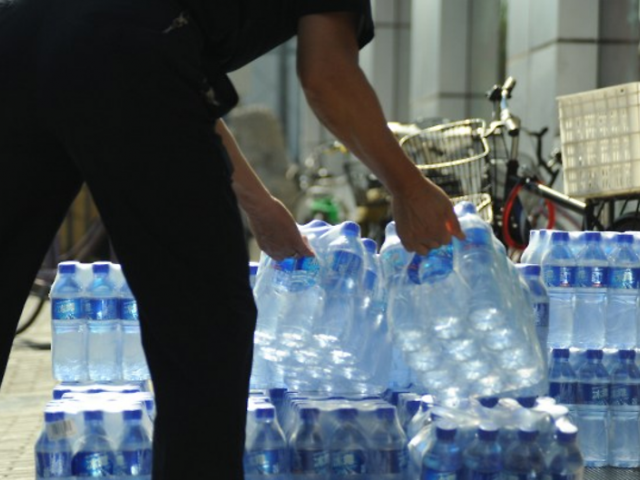WHO launches review into potential risks of plastic in drinking water
A study on Friday found leading brands of bottled water contaminated with tiny plastic particles

The development comes a day after a report said leading brands of bottled water were contaminated with tiny plastic particles. PHOTO: AFP
The organisation will assess the latest research into the spread and impact of the so-called micro-plastics particles that are small enough to be ingested, BBC reported.
Bruce Gordon, coordinator of the WHO’s global work on water and sanitation, told BBC News that
The key question was whether a eating or drinking plastic particles for a lifetime could have an impact on the human body.
"When we think about the composition of the plastic, whether there might be toxins in it, to what extent they might carry harmful constituents, what actually the particles might do in the body – there's just not the research there to tell us.
"We normally have a 'safe' limit but to have a safe limit, to define that, we need to understand if these things are dangerous, and if they occur in water at concentrations that are dangerous."
SC halts distribution of 24 mineral water companies
On Wednesday, the study found “widespread contamination” with plastic was found in the study, led by microplastic researcher Sherri Mason of the State University of New York at Fredonia, according to a summary released by Orb Media, a US-based non-profit media collective.
Mason said, "What we do know is that some of these particles are big enough that, once ingested, they are probably excreted but along the way they can release chemicals that cause known human health impacts.
"Some of these particles are so incredibly small that they can actually make their way across the gastro-intestinal tract, across the lining and be carried throughout the body, and we don’t know the implications of what that means on our various organs and tissues."
Researchers tested 250 bottles of water in Brazil, China, India, Indonesia, Kenya, Lebanon, Mexico, Thailand, and the United States.
Plastic was identified in 93 percent of the samples, which included major name brands such as Aqua, Aquafina, Dasani, Evian, Nestle Pure Life and San Pellegrino.
The plastic debris included polypropylene, nylon, and polyethylene terephthalate (PET), which is used to make bottle caps.


















COMMENTS
Comments are moderated and generally will be posted if they are on-topic and not abusive.
For more information, please see our Comments FAQ